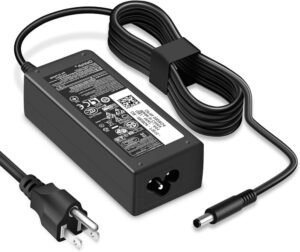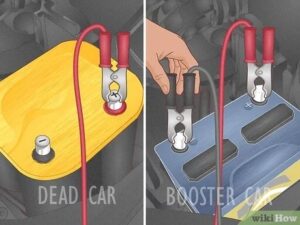Looking for a faster and more efficient way to charge your devices? Look no further! Today, we’re going to dive into the world of Type C chargers, and what they can do for you. So, what’s Type C charger exactly? It’s a newer and more advanced charging technology that has quickly gained popularity in recent years. With its compact size and reversible design, Type C chargers offer convenience and versatility like never before. Whether you’re a tech enthusiast or just someone in need of a reliable charging solution, Type C charger might just be the answer you’ve been searching for. Let’s explore its features and benefits in detail.
What’s a Type C Charger?
A Type C charger, also known as USB-C, is a relatively new standard for charging and transferring data between devices. Unlike its predecessors, such as USB-A and USB-B, Type C chargers have a smaller, reversible connector that can be plugged in either way, making them more user-friendly. This convenient feature has quickly made Type C chargers popular among various devices, including smartphones, tablets, laptops, and even gaming consoles.
Advantages of Type C Chargers
Type C chargers offer several advantages over older USB standards. Let’s take a closer look at some of the key benefits:
- Reversible Connector: One of the most noticeable advantages of Type C chargers is their reversible connector. Gone are the days of struggling to insert the charger into your device the right way. With Type C, you can plug it in any orientation, eliminating the frustration of dealing with a stubborn USB connector.
- Improved Speed and Power: Type C chargers support much faster data transfer speeds compared to USB-A and USB-B. They can transfer data at rates up to 10 gigabits per second (Gbps), which is double the speed of USB 3.0. Additionally, Type C chargers can deliver more power, allowing for faster charging of compatible devices.
- Compatibility: Type C chargers are designed to work with a wide range of devices. They are becoming the standard for many smartphones, tablets, laptops, and other electronic devices. As more devices adopt the Type C standard, it’s easier to find compatible chargers and accessories.
- Universal Support: Type C chargers are designed to be universally compatible. This means that you can use the same charger for multiple devices, regardless of the brand or model. For example, if you have a laptop, smartphone, and tablet that all use Type C, you can use a single charger for all of them, reducing the clutter of multiple chargers.
- Compact Size: Type C connectors are smaller and more compact than their predecessors. This makes them ideal for portable devices like smartphones and tablets, where space is limited. The smaller size also allows manufacturers to create slimmer and more lightweight devices.
Types of Type C Cables
While Type C chargers feature a standardized connector, they can come in different cable types based on their supported features and protocols. Some common types of Type C cables include:
- USB 2.0 Type C: These cables support data transfer speeds of up to 480 megabits per second (Mbps) and can handle power delivery of up to 2.4 amps (A). They are commonly used for basic charging and data transfer needs.
- USB 3.0 Type C: With faster data transfer speeds of up to 5 Gbps and enhanced power delivery capabilities, USB 3.0 Type C cables are suitable for devices that require higher bandwidth, such as external hard drives or high-resolution displays.
- USB 3.1 Type C: These cables support data transfer speeds of up to 10 Gbps and provide even higher power delivery capabilities. They are ideal for devices that demand faster data transfer rates, including certain gaming consoles and professional-grade cameras.
- Thunderbolt 3 Type C: Thunderbolt 3 cables are the fastest and most powerful Type C cables available. They support data transfer speeds up to 40 Gbps and can handle power delivery of up to 100 watts (W). Thunderbolt 3 cables are commonly used for high-performance devices, such as advanced gaming setups or content creation workstations.
Compatibility and Adapters
Type C chargers are designed to be backward compatible with older USB standards. However, it’s important to note that not all Type C cables and devices support the same features and capabilities. Some devices may only support USB 2.0 speeds, while others can take advantage of USB 3.1 or Thunderbolt 3 speeds.
To ensure compatibility, it’s crucial to check the specifications of your devices and cables before making any connections. Using a cable that doesn’t support the required speed or power delivery can result in slower charging or data transfer rates.
Fortunately, various adapters are available to bridge the gap between Type C and other USB standards. For example, if you have a device with a USB-A port and want to connect it to a Type C charger, you can use a USB-A to USB-C adapter. These adapters allow you to continue using your older USB cables while taking advantage of the benefits of a Type C charger.
Type C Chargers and Fast Charging
One of the significant advantages of Type C chargers is their ability to support fast charging. Fast charging technology allows compatible devices to charge at a much faster rate, reducing the time spent waiting for your device to regain power.
Several fast charging standards exist for Type C chargers, including Power Delivery (PD) and Qualcomm Quick Charge. These standards enable devices to negotiate higher power delivery levels between the charger and the device, resulting in faster charging times.
However, it’s important to note that both the charger and the device need to support the same fast charging standard for it to work effectively. Using a charger that doesn’t support your device’s fast charging standard may not provide the desired charging speed.
Conclusion:
Type C chargers have revolutionized the way we charge and transfer data between devices. With their reversible connector, faster speeds, universal compatibility, and compact size, they have quickly become the go-to standard for many electronic devices.
As technology continues to advance, we can expect to see even more devices adopting the Type C standard, further solidifying its place in the world of charging and data transfer. Whether you’re charging your smartphone, tablet, or laptop, Type C chargers offer convenience, efficiency, and versatility.
Remember to always check the specifications of your devices and cables to ensure compatibility. With the right Type C charger, you can enjoy fast charging speeds and seamless connectivity across your devices.
Frequently Asked Questions
What is a Type-C charger?
A Type-C charger, also known as a USB Type-C charger, is a type of charging cable and connector that has become increasingly popular in recent years. It features a reversible USB-C connector that can be plugged into compatible devices in either orientation, making it more convenient to use. It is designed to provide faster charging and data transfer speeds compared to previous USB standards.
What devices are compatible with Type-C chargers?
Type-C chargers are compatible with a wide range of devices, including smartphones, tablets, laptops, and other electronic devices. Many newer models of smartphones and laptops are equipped with a USB-C port, making it the standard charging connection for these devices. It is important to check the device specifications or consult the manufacturer to determine if it supports Type-C charging.
What are the advantages of using a Type-C charger?
Type-C chargers offer several advantages over older charging standards. They support faster charging speeds, allowing devices to charge more quickly compared to traditional USB-A chargers. Type-C chargers also have the ability to transfer data at higher speeds, making it easier and faster to transfer files between devices. Additionally, the reversible design of the USB-C connector eliminates the frustration of trying to plug in the cable the wrong way.
Can I use a Type-C charger with devices that have a different charging port?
Yes, it is possible to use a Type-C charger with devices that have a different charging port, but you would need an adapter or a different cable with the appropriate connectors. For example, if you have a device that uses a Micro USB or Lightning port, you would need a USB-C to Micro USB or USB-C to Lightning adapter or cable to connect it to a Type-C charger. However, it is important to note that using an adapter or different cable may affect the charging speed or compatibility.
Do all Type-C chargers provide the same charging speeds?
Not all Type-C chargers provide the same charging speeds. The charging speed depends on various factors, including the wattage and amperage of the charger, as well as the device’s capability to support faster charging. Some Type-C chargers support fast charging technologies, such as Power Delivery (PD) or Quick Charge, which can provide higher wattage output and faster charging times. It is recommended to check the charger’s specifications and the device’s compatibility to ensure optimal charging speed.
Final Thoughts
In conclusion, a Type C charger is a versatile and efficient charging solution for various devices. With its reversible connector, it provides convenience and ease of use. The Type C charger is designed to deliver faster charging speeds and higher power output, making it suitable for smartphones, laptops, tablets, and other compatible devices. Its compact design and universal compatibility make it an ideal choice for modern technology users. So, if you’re looking for a reliable and future-proof charging solution, the Type C charger is definitely worth considering.



